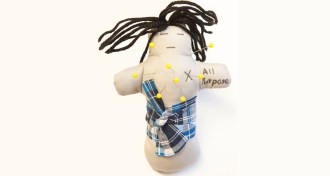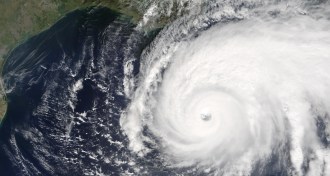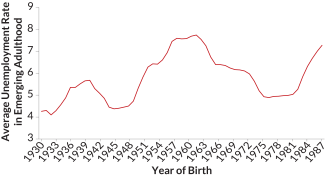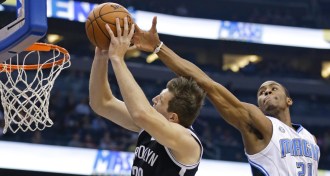Psychology
-
 Psychology
PsychologyJust four questions can identify which ER patients need prompt care
A simple decision tree may find serious ailments in ER patients’ fuzzy complaints.
By Bruce Bower -
 Psychology
PsychologyChildren negotiate taking turns surprisingly early in life
Five-year-olds can coordinate decisions with others in a fair way, even when each child has conflicting interests.
By Bruce Bower -
 Humans
HumansThere’s more to acing interviews than holding the vocal fry
A new study of vocal fry, a low razz in human speech, suggests job interviewees might want to hold the fry. But there's more to a job interview than a little vocal sizzle.
-
 Psychology
PsychologyWhy stabbing a voodoo doll is so satisfying
To measure how aggressive a person is, psychologists turn to voodoo dolls and hot sauce.
-
 Psychology
PsychologyStereotypes might make ‘female’ hurricanes deadlier
Precautions may get shelved by those in the path of severe storms with feminine names, leading some to suggest that storms should be named after animals.
By Bruce Bower -
 Psychology
PsychologyRecessions take a lasting toll on narcissism
Coming of age in hard economic times makes people less likely to feel superior and entitled later in life.
By Bruce Bower -
 Psychology
PsychologyFarming practices have shaped thinking styles
The different levels of cooperation required to grow rice and wheat have sown psychological differences within China and possibly between East Asia and the West.
By Bruce Bower -
 Psychology
PsychologyWhy every face you draw looks a little Neandertal
Just about everyone draws faces with the eyes too high and a low Neandertal forehead, maybe because of the way we perceive the shape of the head.
-
 Psychology
PsychologyBasketball players richly rewarded for selfishness in playoffs
Future paychecks trip up teamwork in NBA championship tournament.
By Bruce Bower -
 Neuroscience
NeuroscienceHumans can sniff out gender
A new study adds to controversy of whether people have pheromones.
By Meghan Rosen -
 Psychology
PsychologyLeonardo da Vinci may have invented 3-D image with ‘Mona Lisa’
A mysterious copy of the ‘Mona Lisa’ combines with the Louvre painting to make a stereoscopic image of the woman with the enigmatic smile.
-
 Science & Society
Science & SocietyStudents retain information better with pens than laptops
Compared with typing on a laptop, writing notes by hand may lead to deeper understanding of lecture material.